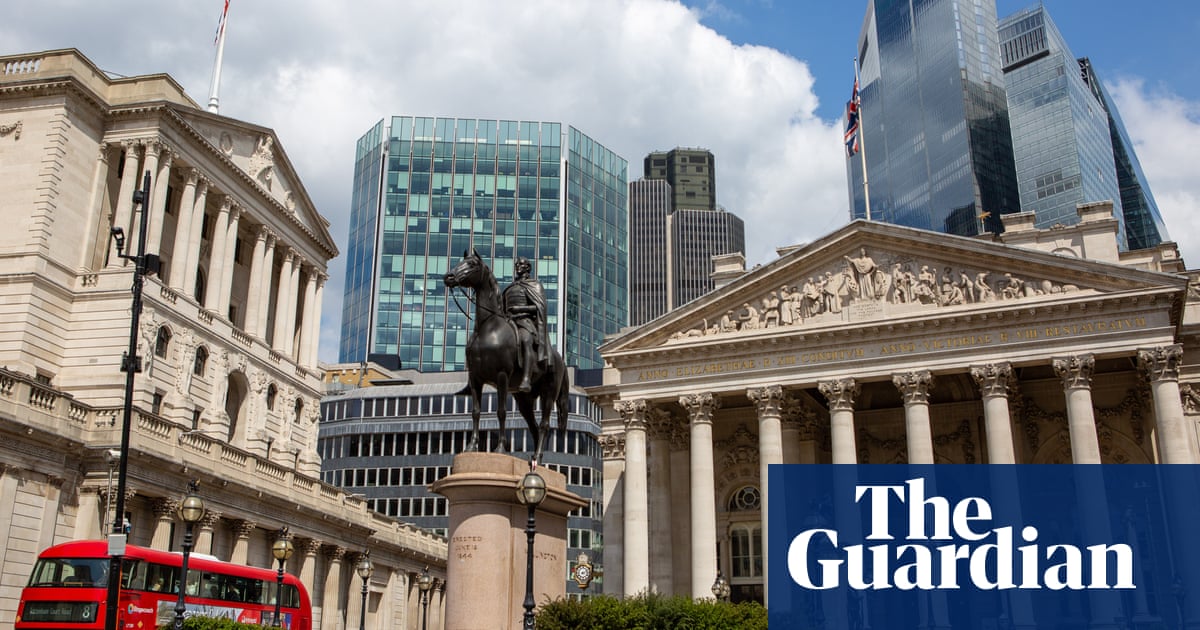
eople have been freaking out about inflation. Recent numbers from the UK and the US seem to have confirmed their fears. Prices are clearly rising. Anyone trying to build a house or do up their garden for the summer can attest to that. The question is, are they rising because of lockdowns, Brexit and the big, marooned ship or are they rising because, on both sides of the Atlantic, we’ve over-egged our fiscal response to the pandemic?
Before we conclude “it is clear that inflation is here” we should think long and hard about what is causing prices to rise and who has the ability to influence that trend. The prevailing narrative is that inflation is the product of overly “ambitious government spending”. The chancellor, Rishi Sunak, has expressed these fears. And the former US treasury secretary Larry Summers said of President Biden’s spending proposals: “I’m concerned that what is being done is substantially excessive.”
Comments such as these are dangerous because they can create a narrative that threatens much-needed government spending. Inflation can result from mistaken expectations, just as easily as monetary mismanagement. It is common knowledge among inflation watchers that inflation expectations matter, because people set prices.
If people expect their costs to go up, they raise prices to compensate. High inflation expectations beget actual inflation. The most “dangerous” version of this story is the fabled “wagey-pricey” spiral in which workers expect prices to rise, and thus the cost of living to increase, and as a result, they will negotiate higher wages. This forces firms to raise prices, which spurs workers to negotiate raises, and on it goes – an inflation spiral. This is what Andy Haldane, the chief economist at the Bank of England, has in mind when he says, “once it’s in pay packets as well as prices, the genie truly is out”.
But this same spiral could look very different. As we come out of lockdown and begin to spend again, firms could use this extra capital to invest and hire more people, leading to rising incomes and more spending. In other words, instead of inflation we get growth.
So, which is it? Scary, damaging inflation or temporary price increases and long-term growth? Depends on who you ask. This is where the influence of economic ideas, theories and models comes in. When he thinks about how the economy works, Summers imagines a bathtub. If the government puts too much money in the economy, it results in inflation, causing the bathtub to overspill. In this model, high government spending necessarily causes inflation.
Imagine instead that the economy is like a flower bed. It’s possible that overwatering could cause spillover, but it depends on how you water it and where. If you pour water in one place that is already saturated, it’s likely to flood and cause the flowers to die. In contrast, if you shower water over the whole bed, or focus on the driest areas, the water will be soaked up and the flowers will grow. Similarly, there is a difference between the government pouring yet more money into Jeff Bezos’s pocket and it spending on infrastructure, education, research and development, and healthcare. There is a difference between inflation expectations leading to higher financial sector bonuses and NHS nurses getting the pay rise they’ve asked for.
Inflation expectations determine how and what we do as economic agents, as consumers and as price-setters. Those expectations are formed by what we think the economy looks like. Economic ideas, theories and models frame the way we interpret the world and thus what we expect to happen. They seep through to us in myriad ways, via what Summers writes in a newspaper or what we were taught about the great inflation of the 1970s and 80s.
Much of monetary policy is aimed at “anchoring” inflation expectations. Most major central banks design policies, press releases and announcements with the aim of establishing the widespread belief that inflation will average 2% relatively soon, and will stay there. If most economic actors expect inflation to be about 2%, they will base their pricing on that projection, thus causing inflation to be about 2%.
The “anchor” term here is useful. An anchor keeps a boat in roughly the same position. Anchored inflation expectations are meant to keep inflation in roughly the same position, namely 2%. We know, however, that strong currents and tides can drag an anchor. Similarly, strong narratives can change inflation expectations through their performative power. Economic narratives have performative power when they don’t just describe the economy, but instead drive economic action. As the sociology professor Donald MacKenzie so aptly put it, economic models can act as engines as well as cameras.
Economic concepts need not be true to have performative power. Suppose that I am a price-setter in the economy and I believe that high government spending causes inflation. I then witness the UK government’s spending reaching record levels. It would make sense for me to raise prices because I expect inflation and, therefore, rising costs. In acting on this expectation, I create inflation. What causes inflation in this example is not government spending, but instead my actions based on my own (false) beliefs.
We can have inflation without high government spending, or high government spending without inflation. The most obvious evidence of this is the 2008 global financial crisis. In response to this financial meltdown, major central banks, including the Bank of England, injected a huge amount of newly created money into the economy, superseded only by the recent response to the coronavirus crisis. Economists and market participants worried at the time that this would result in dangerous inflation. It didn’t.
Yet we are living in a world in which many people, specifically many price-setters, believe that high government spending will necessarily cause inflation. This mistaken belief, if allowed to exert performative power, could have serious consequences. First, it could result in actual inflation. This might not be such a bad thing, because inflation has been below target in most advanced countries for many years, and because evidence suggests that the negative effects of inflation only kick in when it hits double digits.
The real danger is that a performative belief that high government spending causes dangerous inflation could stymie government spending despite the fact that high government spending – especially on fundamentals such as physical and social infrastructure – need not lead to dangerously high inflation. What is essential to remember is that it is within our power to prevent inflation, not by radically limiting government spending, but by ensuring that those with pricing power don’t mistakenly expect it.
Leah Downey is a PhD candidate in the department of Government at Harvard University, and a visiting academic at the Sheffield Political Economy Research Institute (SPERI)











